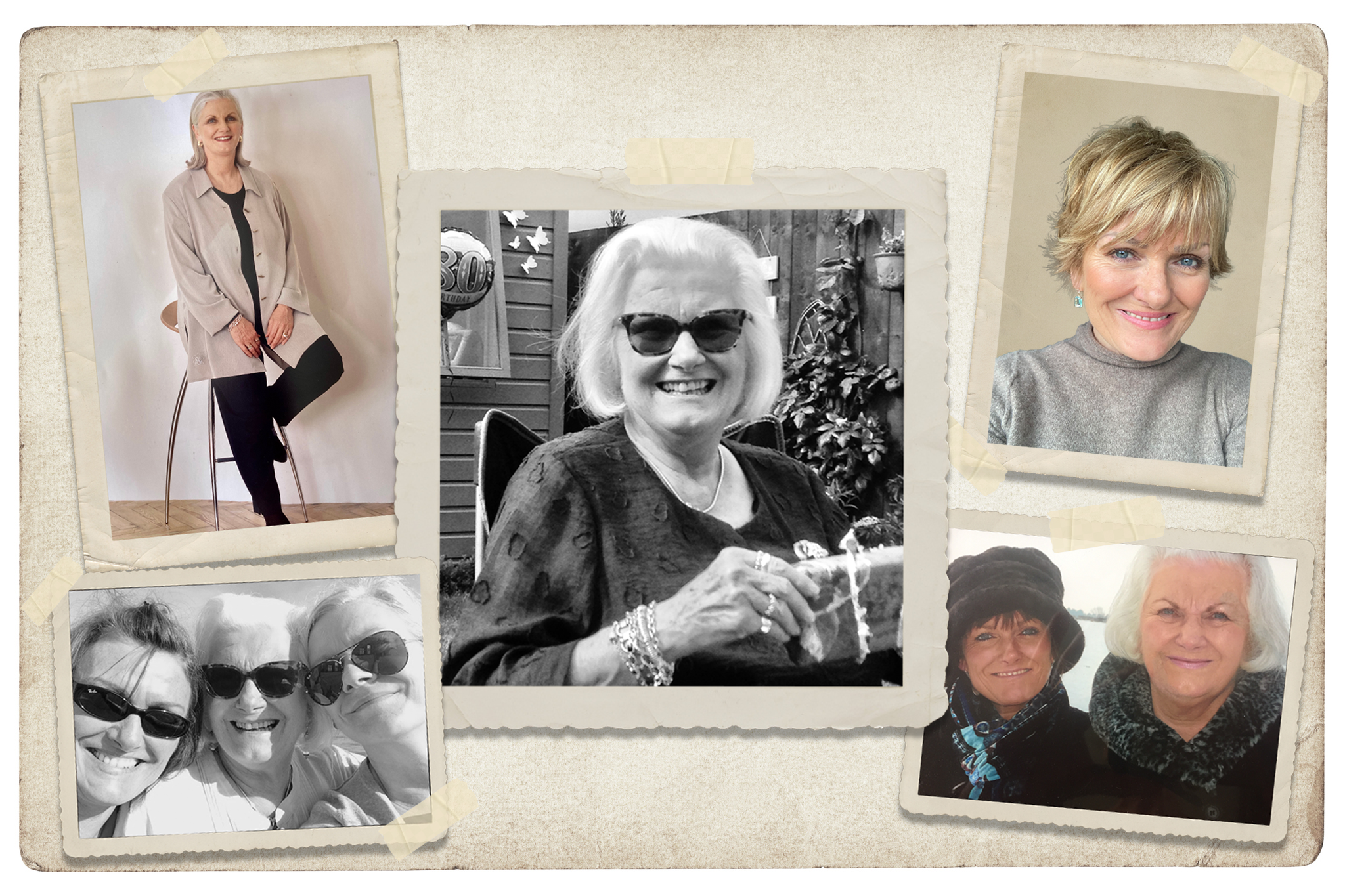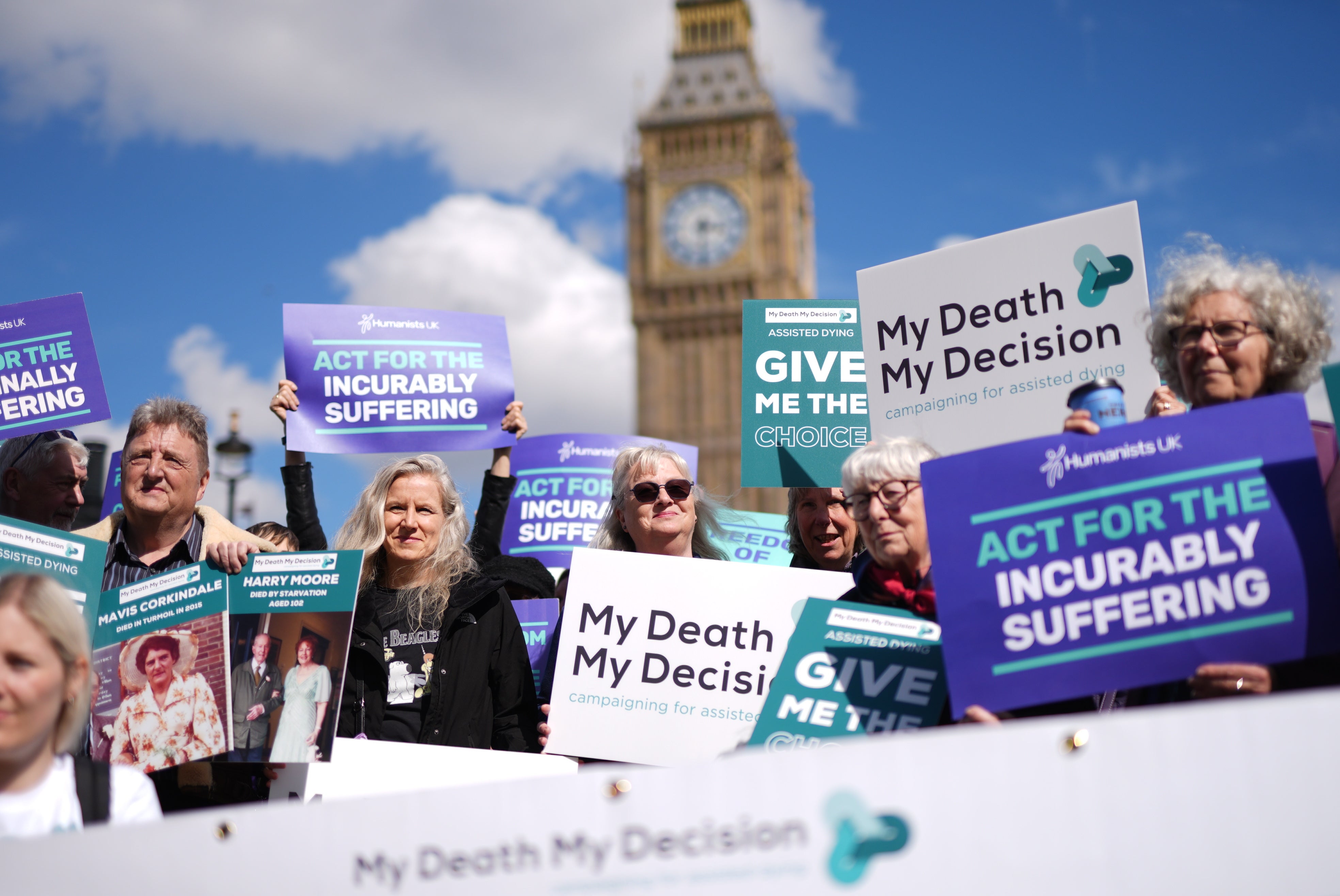I took Mum to Dignitas, but this act of love was investigated as a crime for two years
As the Archbishop of Canterbury warns of a “slippery slope” ahead of an assisted dying bill being officially introduced to Parliament, Mandy Appleyard describes the moment her mum told her she didn’t want to live anymore after a severe stroke, and how helping with the arrangements to go to an end-of-life clinic in Switzerland sparked a living nightmare...

Seeing my fit and active mum felled by a severe stroke was heartbreaking: a powerhouse of energy and joie de vivre reduced to a life of dependency that she loathed. Accompanying her to Switzerland when she chose an assisted death over a life of disability and confinement was sad beyond imagining.
To then be actively investigated for two years by the police for assisting a suicide was nothing short of a nightmare.
So when broadcaster and campaigner Esther Rantzen – who is terminally ill – pleaded with MPs to attend a Westminster debate on assisted dying earlier this year, she spoke for my mum, for me, and for all the people unlucky enough to have been sucked into the cruel anachronism that is this country’s law on assisted dying. (It is illegal in England, Wales and Northern Ireland, with a maximum prison sentence of 14 years.)
My mum, Janet Appleyard, was 81 and fit as a fiddle, waiting for the bus to a dance class when she collapsed in May 2019 after what was later revealed to have been a severe stroke.
She lost some sight, a lot of her speech and was paralysed down her right side, meaning she was confined to a chair/wheelchair/electric bed and had to be cared for by others. For someone as positive and powerful as Mum had always been, this diminishment seemed especially cruel.
Supported by carers, physiotherapists and speech therapists, Mum worked hard to overcome her disabilities but still, she would tell us, tearfully, that she felt “useless”. She said she wished the stroke had killed her.
Mum often mentioned wanting to go to Dignitas to die, but my sister and I urged her to wait a little longer and see what improvements she might make. We hoped Mum would come to accept her predicament and live in peace with her disabilities.
But then one afternoon in September 2020, Mum told my sister and me that she wanted to die as soon as she could. She was typically matter-of-fact: “I can’t live like this,” she told us. It was entirely in character that a proud and purposeful woman would make the end-of-life decision that she did. As her loving and devoted daughters, we felt we had no choice but to support her decision.

The following week Mum spoke to Dignitas on the phone – the first of many calls. Arranging an assisted death is a complex and immensely challenging process; medical, hospital, legal and dental records are required, and Mum needed a detailed psychiatric assessment. All this took several months and had to be achieved in secrecy, given our law on assisting on what is classed as a suicide.
Mum’s assisted death cost around £10,000, which included cremation in Switzerland. She had to fly privately (the only way she could get to Zurich, given her disabilities), which cost her another £10,500. I am sharing those details, not complaining about them. Mum used her life savings to pay for her death: many people wouldn’t have the option of this impossibly difficult and expensive journey.
She died in February 2021 in a sun-filled apartment, with my sister and I at her bedside. Practically, Mum couldn’t have made the journey alone – and, emotionally, it would have been just too sad for us to leave her facing this on her own. She took a small, fatal drink, closed her eyes and fell unconscious within seconds.

We watched in silence at Mum’s chest rising and falling until, minutes later, it stopped. There were no emotional deathbed scenes, we’d spent two years saying our goodbyes. Her last words were how it felt like the drink was burning her throat. “Think of it like whiskey,” the nurse said, to which she replied, “I only like Irish whiskey”. Her last words.
She was cremated in Switzerland and her ashes were couriered back to us in the UK, which we scattered on the beach she had loved walking with me and my dog. Some were also buried in the churchyard with my dad, her husband John, who had died in 2014 and to whom she’d been married for nearly 60 years.
I wish our story had ended there, two daughters left to grieve their greatest loss, but within 24 hours of our return to Yorkshire, the police contacted us and arranged to interview me under caution about what had happened.
They had been tipped off by a third party and I cooperated fully during an unnerving two-hour interview and was reassured that the Crown Prosecution Service would reach a speedy decision that was likely to be in my favour.
Humberside Police then investigated me for nearly two years. They scrutinised our bank accounts, took witness statements from friends and family, requested a video in which Mum spoke of her decision to die.
The law should protect and support us. As it stands, it’s a muddy mess that criminalises compassion and stands in the way of end-of-life autonomy
It was something I had done on my phone as a precaution to show Mum was in full control of her decision. They asked to see psychiatric and psychology reports from the experts who had assessed Mum’s capacity and soundness of mind, and asked Dignitas for information about Mum’s case.
What my sister and I had regarded as an act of love was now being investigated as a crime. We wanted to mourn the death of our mother. Instead, a protracted legal process opened awful wounds again and again – and only ended with a cursory email in December 2022 in which I was advised that it was not in the public interest to prosecute me.
A private members bill is due to be formally introduced to the House of Commons this week and is described as offering choice at the end of life, but until now our elected representatives have remained hugely out of step with public opinion. According to research by campaign group Dignity in Dying, more than 80 per cent of people want assisted dying reform for people who are terminally ill or intolerably suffering.
An estimated 540 people from the UK have ended their lives at Dignitas over the last 20 years. Statistics are not available for how many Britons have died at Switzerland’s other assisted dying facilities, of which there are at least two, so the real number is much higher. One person a week goes to Switzerland from the UK for an assisted death – more than twice as many as a few years ago.

Meanwhile, the citizens of Australia, Canada, parts of the US, the Benelux countries, Spain and Austria can all legally put an end to their suffering and can be in familiar surroundings, with those they love beside them.
The current law is not working for individuals or their families, as our story so vividly illustrates. Until it changes, families like ours and Esther Rantzen’s are faced with a dreadful dilemma: let someone they love travel and die alone, or risk imprisonment for going with them.
But it doesn’t have to be this way. If so many other countries can allow assisted dying in a safe and legal manner, using robust safeguards, why can’t we? As Ranzten has said, in many instances animals in this country have kinder deaths than humans do.
My mum’s simple wish was to die with dignity and in peace – she could not live with the immense disability caused by stroke. If she had lived in any of the countries listed above, she could have done so quite easily. Instead, she had to travel nearly 1,000 miles (in severe pain and distress and in a wheelchair), at a cost of more than £20,000.
The law should protect and support us. As it stands, it’s a muddy mess that criminalises compassion and stands in the way of end-of-life autonomy. It would have been heartbreaking for Mum to see the distress her decision caused for me and my sister.
If she had known, there’s a chance she wouldn’t have gone through with it and would have just continued suffering. She was such a good mum like that. As her daughter, I just didn’t want to let her down.
If you are experiencing feelings of distress and isolation, or are struggling to cope, The Samaritans offer support; you can speak to someone for free over the phone, in confidence, on 116 123 (UK and ROI), email jo@samaritans.org, or visit the Samaritans website to find details of your nearest branch.
Join our commenting forum
Join thought-provoking conversations, follow other Independent readers and see their replies
Comments


Bookmark popover
Removed from bookmarks